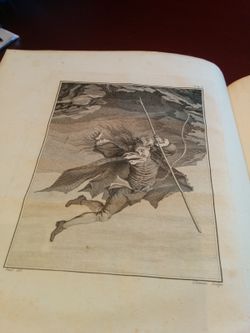Difference between revisions of "Futurescapes"
| Line 5: | Line 5: | ||
[[File:Futurescapes.png|center]] | [[File:Futurescapes.png|center]] | ||
| − | ===A Symposium in New Media,Technologies and the Humanities=== | + | <style font-size: 10px>===A Symposium in New Media,Technologies and the Humanities=== </style> |
The Faculty of the Humanities at the Norwegian University of Science and Technology (NTNU) is pleased to announce a two-day symposium on New Media,Technology, and the Humanities, organized in connection with the [http://metamorf.no/2016/ TrondheimTechnology Biennale,] devoted to the technology of the outer space and interstellar travel. | The Faculty of the Humanities at the Norwegian University of Science and Technology (NTNU) is pleased to announce a two-day symposium on New Media,Technology, and the Humanities, organized in connection with the [http://metamorf.no/2016/ TrondheimTechnology Biennale,] devoted to the technology of the outer space and interstellar travel. | ||
Revision as of 12:35, 6 August 2015
This page is under development. It will be up soon
<style font-size: 10px>===A Symposium in New Media,Technologies and the Humanities=== </style>
The Faculty of the Humanities at the Norwegian University of Science and Technology (NTNU) is pleased to announce a two-day symposium on New Media,Technology, and the Humanities, organized in connection with the TrondheimTechnology Biennale, devoted to the technology of the outer space and interstellar travel.
Futurescapes shares the Biennale’ interest in interplanetary, space, and time, and the cosmic beyond, and in humans who dream, invent, construct and destroy their way into the future but it frame these issues as humanities, new media, and technology questions. As we enter our future, scientists in the Digital Humanities start to break down the boundaries that have separated communication technologies and the classical humanities. Knowledge about ourselves, our history and our future, our culture and our languages, finds in the Digital Humanities new forms of expression. Digital communication brings us in constant connection to others and exposes us to a encompassing stream of sounds, pictures and words which fill us with new ideas and visions. We therefore envision Futurescapes as a space for scholars across diverse fields to showcase their interdisciplinary work . The Symposium aims to not only offer an opportunity for interdisciplinary practitioners to share their projects, but also to interrogate critically how and with what tools humanists and technologists make things and think big ideas. We also would like to think about the ethical, legal, and political implications of such work, how does it bear on the futures of our fields and beyond.
Key speakers
More information soon
Call for Papers
Futurescapes will showcase interdisciplinary and/or digital humanities projects which deal with any of the issues listed below and Local scholars, practitioners and students from the fields of technology, the arts, and the humanities are especially encouraged to submit their papers or projects.
Digital humanities, interdisciplinary methodologies and new research questions: How have humanistic thought and creative practices associated with fine arts, music, popular culture transformed, for example, critical design studies, or neuroscience, information technology, communications, and computational sciences research? Conversely, how has the digital turn transformed the supposedly “analogue” disciplines of literary studies, linguistics, and philosophy? What do text mining, data visualization, sonification, topic modeling, textual annotation, digital curation, and network analysis offer the humanities? What are the new research questions they enable us to ask? What are the benefits and limitations (economic, methodological, political, legal, ethical, etc.) of this digital and big data turn and such cross-disciplinary methodologies?
Speculative practices in the humanities and technological fields: How do different disciplines produce predict futures? How do they narrate and landscape the future? How do they harvest the “past” for this purpose?
Disciplinary keywords in translation: What are the humanities and technical sciences’ key terms (memory, space, future, data, narrative, network, design, for instance), and how do they travel/translate across disciplines?
Critical pedagogy: How can we use technology in the service of critical pedagogical practices? How can technology help build collaborative and critical intellectual communities? Activate new student networks? Transform teaching, assessment, and reflection into dialogical practices? Turn students and educators into active global digital citizens?
Sustainability and the humanities. How do interdisciplinary humanities engage with sustainability in environmental and temporal senses? How can those of us working in digital humanities create project that last, instead of dying of “digital rot”? Can the humanities help us better understand sustainability? Can technology make the humanities more sustainable?
Legal regimes and access to technology and the humanities: How do intellectual property law shape knowledge production and sharing in the humanities, tech and science fields?
Power, technology, and the humanities: How are existing power frameworks (also within the humanities itself) consolidated, transformed, challenged by new technologies? Who has the privilege, the right to create and narrate the future? What is the gender of the future? How are our futures classed and raced?
Abstract Submission
- Abstracts of up to 500 words (excluding references and Figures or Tables) should be sent by 31st November 2015 to the following e-mail address: futurescapes@ntnu.no
- Proposals for a Mini workshop Abstracts of not more than 200 words. The abstract should be sent by 31st October 2015 to the following e-mail address: futurescapes@ntnu.no
- Lightning Shorts (PhD and MA students are particularly welcome to showcase their work)
Abstracts of not more than 200 words should be sent by 31st November 2015 to the following e-mail address: futurescapes@ntnu.no
Venue
More information soon
Organisers
More information soon
Sponsors
More information soon


